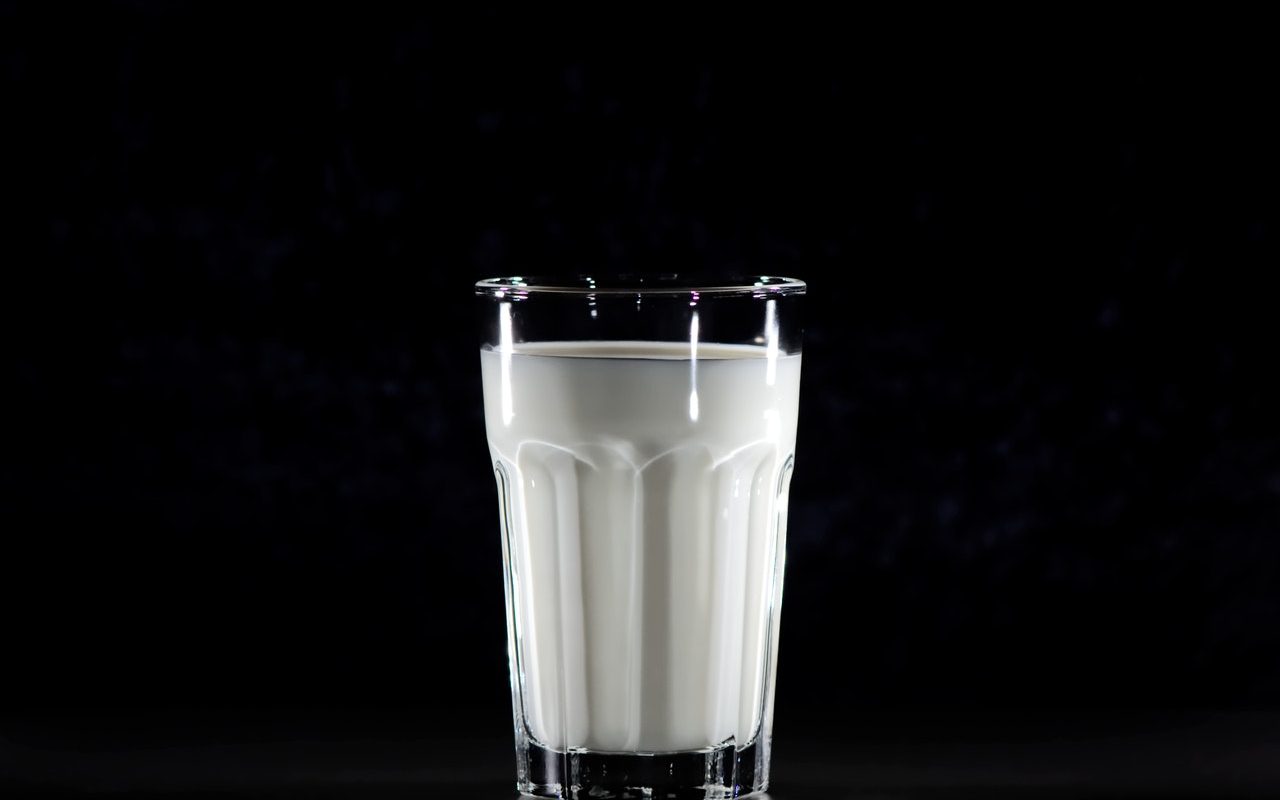A single cup of non-fat milk contains 299mg of calcium per serving. In comparison, the more popular full cream milk has only 276mg. Sounds like a lot, right? Well, unfortunately, it barely scratches the surface.
The recommended daily intake (RDI) for calcium for men aged 19-70 and women aged 19-50 sits at around 1000mg daily. For the elderly, it’s even more–men aged +70 and women aged +50 need 1,300mg daily. At those numbers, you’d need at least four glasses of milk to meet an RDI of 1000mgl; five for the elderly.
So, how much calcium does the average person consume daily? Only Americans appear to be getting enough calcium, with the average daily intake in the USA (from foods and supplements) sitting around 1,156mg for men, 1,009mg for women, and 968 to 1,020mg for children.
Average consumption in New Zealand and Australia sits at 807mg. And in Asian countries, it’s even worse at less than 500mg. Such low levels are associated with osteoporosis, a horrible condition that weakens bones, making them prone to fracture.
So if milk isn’t the answer, how do I know if I’m getting enough calcium?
It’s time to tell you about the incredible benefits of A2+ milk powder. Taking the already nutrient-rich liquid gold that humans have been drinking for thousands of years, science goes beyond convention to improve bone health, intestinal health and boost immunity.
What is calcium?
Calcium is the ingredient with think of most to help us grow up big and strong. About 99% of it is stored in your bones, with the remaining calcium found in blood, muscle, and other tissues. However, beyond stronger bones and teeth, calcium is a critical component in natural blood clotting, muscle contractions and regulating the cardiovascular and nervous systems.
If levels are low, the body turns on the parathyroid hormone (PTH), which causes your bones to release calcium into the bloodstream, alongside Vitamin D to improve absorption. PTH also tells your kidneys to reduce the amount of calcium in your urine. Once levels are back to normal, the hormone calcitonin is released, halting its release from your bones.
Why is calcium important?
Studies have shown that increased calcium supplementation levels are associated with increased bone density. A two-year gold-standard trial of postmenopausal Chinese women determined that those who consumed more than 600mg of calcium daily saw the most benefit. Another study, directed at adolescents, saw greater bone density in the hips and legs of girls at intakes of 1110mg per day, compared to just 655mg.
Calcium deficiency
What happens when you don’t get enough calcium is a loss of bone density, which can lead to osteoporosis. Common amongst people over the age of 60, according to Health Direct Australia, you are most at risk of calcium deficiency and osteoporosis if you:
- don’t get enough calcium in your diet
- have low vitamin D levels
- have certain medical conditions, such as coeliac or kidney disease
- take steroids for a long time
- eat a diet high in certain plant nutrients (phytates and oxalates)
- consume a lot of caffeine or alcohol
People over the age of 50 should discuss the risks of osteoporosis with their GP or doctor to determine whether they should receive a bone density test.
Four sources of calcium
Your body replenishes calcium from the food you eat. Although not everything we eat contains this essential mineral, the list of calcium-rich food includes leafy greens, beans, nuts, and some starchy vegetables, alongside the regular dairy suspects.
A2+ Milk Powder
As we mentioned, a standard glass of milk doesn’t go far enough. With only 299mg per serving in non-fat milk and 276mg in whole cream varieties, a single serving will get you a third of the way towards your RDI and only a quarter for the elderly.
Milk powder, however, isn’t restricted to the nutrient levels found naturally in milk. NATUREDAY A2+ Probiotics Formulated Full Cream Milk Powder, for example, contains nearly double–572mg or roughly 72% of an adult’s daily needs in every glass.
Combined with natural calcium lactate to strengthen bones and teeth, improve bone growth and prevent bone loss, plus Vitamin D3 and Vitamin A help with absorption, A2+ Milk Powder is a comprehensive solution to getting more calcium from a glass of milk.
And unlike calcium supplements, you can drink NATUREDAY milk powder without needing to speak with your doctor.
Yoghurt
But what if you don’t like milk? What about Yoghurt? Another beloved dairy treat.
A 200g tub of yoghurt contains about the same levels as a glass of milk at 300mg. And thanks to the fermentation process required to produce yoghurt, it’s also boosted with phosphorus, potassium, and vitamins B2 and B12, making it even more nutritious than the milk it was made from.
Soy yoghurt also exists, though it contains much less, with levels ranging from 80 to 250mg in a single tub.
Leafy Greens
Alongside Edamame (which contains 98mg per cup), leafy greens like collard, mustard, turnip, kale, bok choy and spinach are all incredible sources of calcium. Fresh spinach contains the most calcium at 257mg per cup, while kale contains about 179mg. Frozen collards take the top position with about 357mg per cup.
Unfortunately, it’s still considerably less than the amount found in NATUREDAY A2+ milk powder.
Nuts
Nuts are the unsung hero of calcium, especially almonds. Despite their tiny size, a cup of raw almonds contains 246mg calcium. And with the abundance of healthy fats, fibre, magnesium and Vitamin E, nuts are an excellent addition to your snack drawer.
Getting enough calcium
The answer is simple. A single glass of NATUREDAY A2+ Probiotics Formulated Full Cream Milk Powder contains 572mg or roughly 72% of an adult’s daily needs. That’s triple what you would find in a glass of milk, a cup of leafy greens or nuts. Even yoghurt doesn’t come close.
If you need to up your calcium intake, the answer is NATUREDAY–an enjoyable formulated full cream family milk that’s authentic, delicious and cutting-edge.






